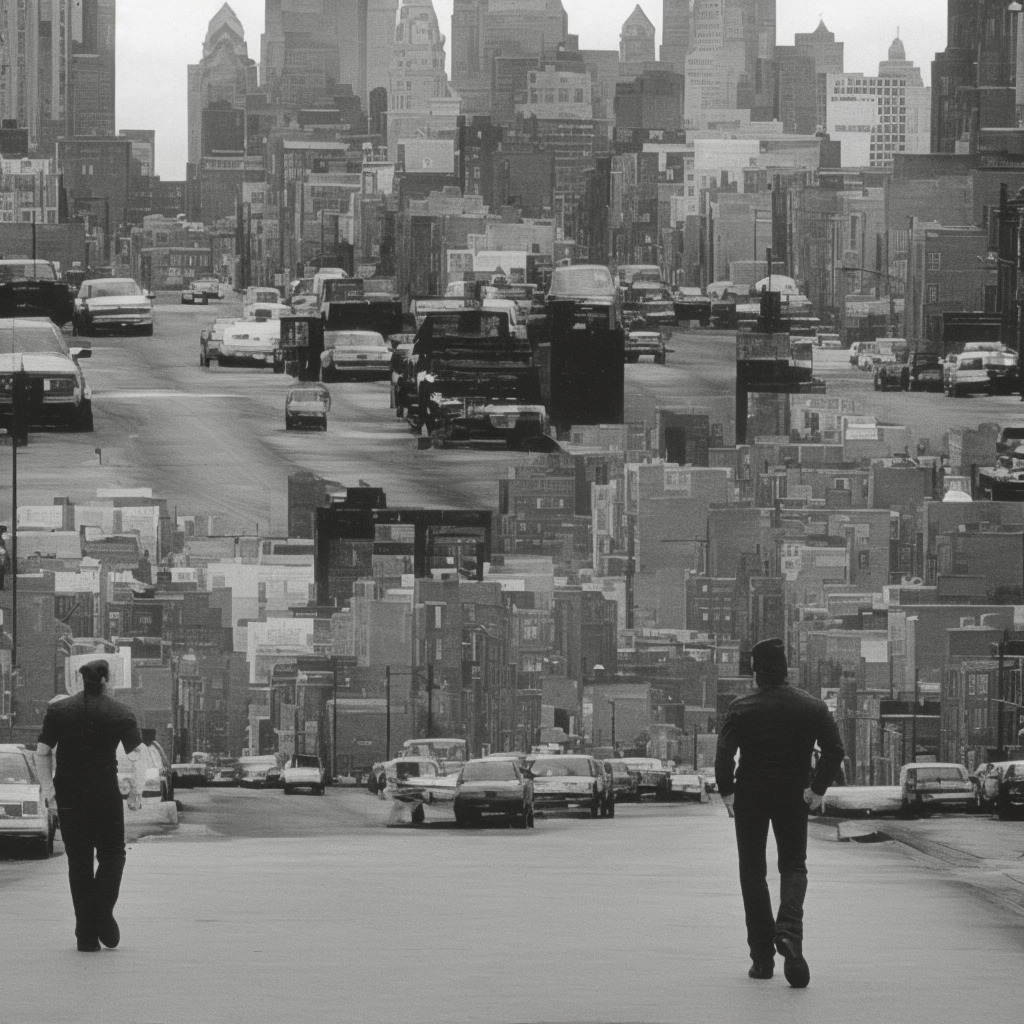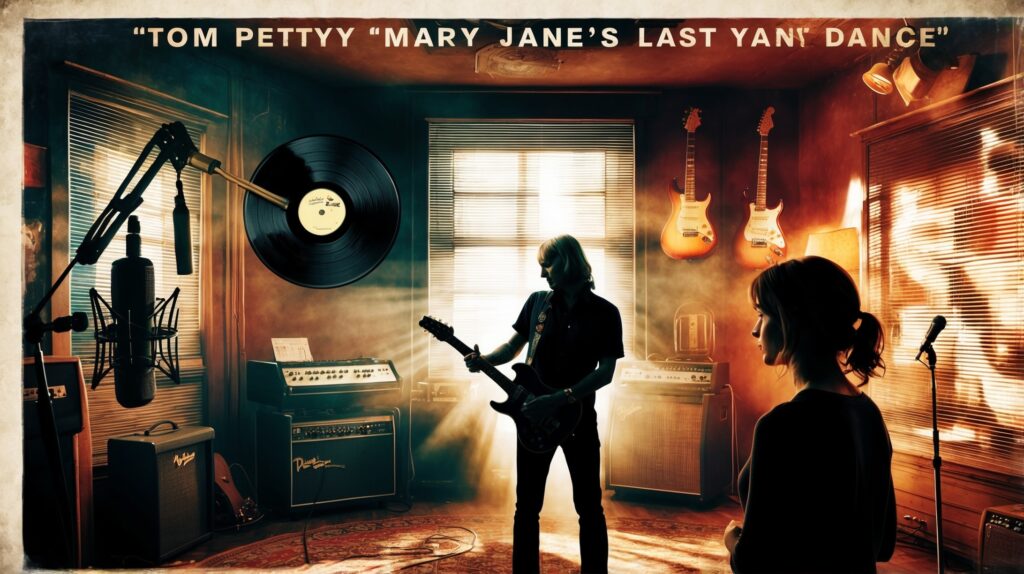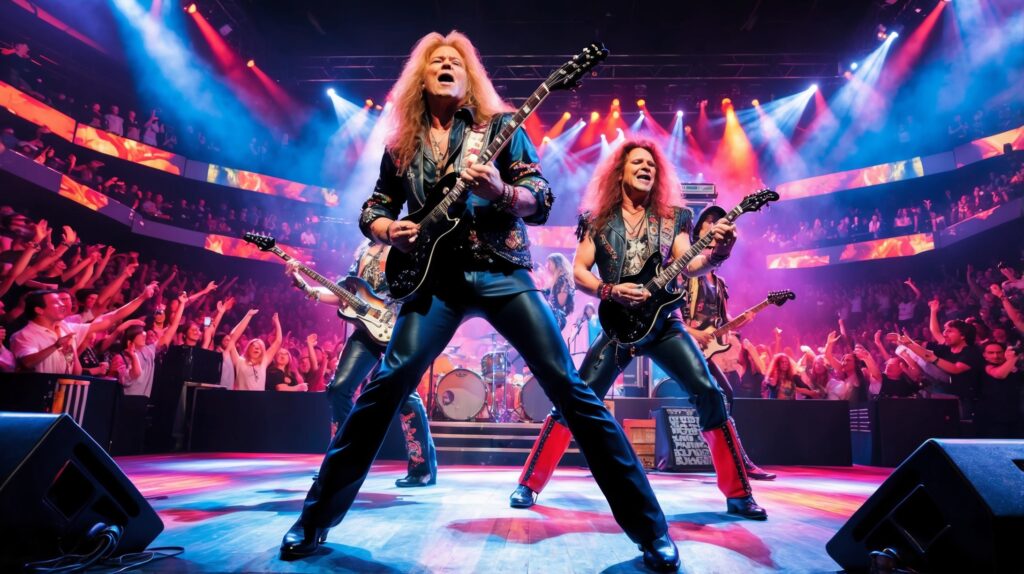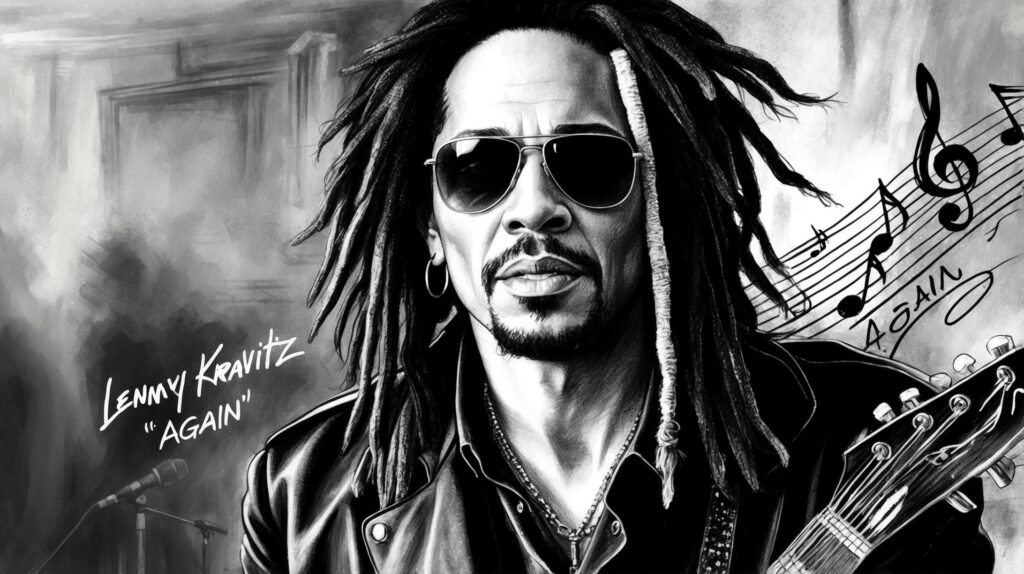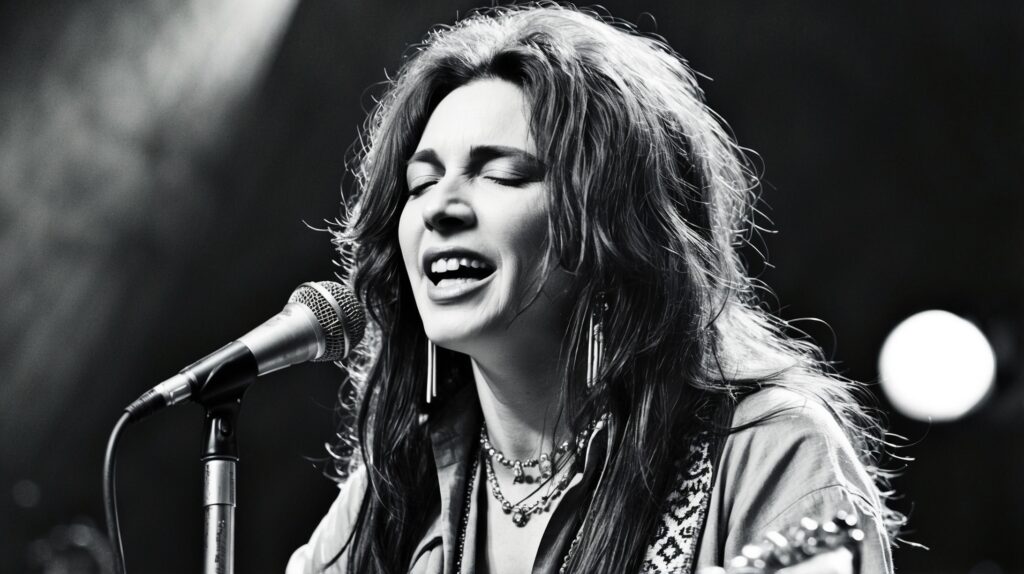🚶♂️🎶 Did you know “Streets of Philadelphia” by #BruceSpringsteen was a chart-topper since its ’93 release for the film Philadelphia? 📽️ Oscar-winning magic from The Boss! 🏆🎸 #StreetsOfPhilly #FunFact #MusicTrivia Read about it: tinyurl.com/mpbaee2h
Exploring the Depths of Springsteen’s Artistry
Dive into the timeless artistry of “The Boss” as we unravel the emotional depth and enduring legacy of Bruce Springsteen’s unparalleled career.
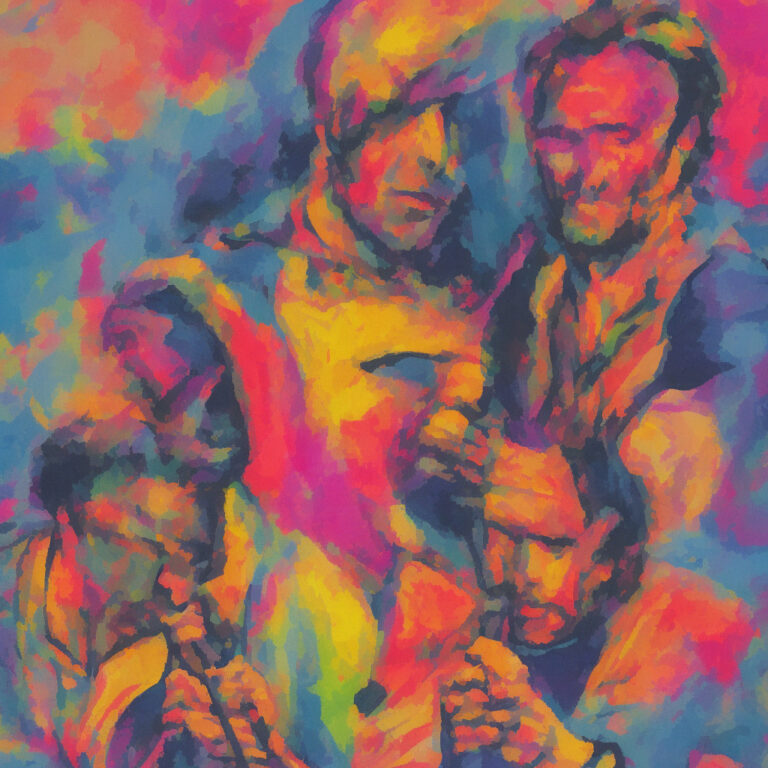
Bruce Springsteen, also known as “The Boss,” has been an iconic figure in the world of rock music for several decades. His distinct sound, profound lyrics, and energetic stage performances have created a fervent fan base and solidified his place in music history. Springsteen’s illustrious career began in the 1970s with his debut album Greetings from Asbury Park, N.J., and he continues to create and perform music to this day.
One pivotal moment in Springsteen’s career came with the release of the song “Streets of Philadelphia” in 1993, which featured on the soundtrack of the groundbreaking film Philadelphia. This hauntingly beautiful and poignant track showcases Springsteen’s ability to convey deep emotions and engage listeners with his storytelling. The song revolves around the experiences of a man with AIDS wandering the streets of the city, reflecting on his life and the societal issues surrounding the disease at the time.
“Streets of Philadelphia” won numerous awards and accolades, including an Academy Award for Best Original Song and four Grammy Awards for Song of the Year, Best Rock Song, Best Rock Vocal Performance, Solo, and Best Song Written Specifically for a Motion Picture or Television. This recognition further cemented Springsteen’s status as a powerful songwriter and artist.
While Springsteen has enjoyed a predominantly successful career, it has not been without its challenges. Despite his commercial success, some critics argue that he has occasionally chosen style over substance, and that his music has become formulaic in recent years. His album “High Hopes” (2014) garnered mixed reviews, with some considering it a step down from his previous work. However, these critiques should not discount the remarkable achievements and impact that Springsteen has had on the music industry.
Throughout his career, Bruce Springsteen has been an influential figure who has inspired countless other musicians. With his powerful songwriting and captivating performances, he has demonstrated a unique ability to connect with audiences and tackle challenging subject matter. “Streets of Philadelphia” is just one example of Springsteen’s unwavering talent, and it serves as a testament to his enduring legacy in the world of rock music.
Charting the Journey of a Timeless Classic
From chart-topping global hit to Grammy-winning masterpiece, Bruce Springsteen’s hauntingly poignant “Streets of Philadelphia” remains a timeless classic that resonates with listeners worldwide.

Released on February 2, 1993, “Streets of Philadelphia” quickly became one of Bruce Springsteen’s most successful and beloved songs. As a testament to its impact, the song made its debut on the US Billboard Hot 100 chart on February 20, 1993, at position number 67. It continued to climb the chart, eventually peaking at an impressive number 9 spot on April 10, 1993. This was no small feat, considering the song’s profound and somber theme that sets it apart from other contemporary tracks of that time.
The chart success wasn’t limited to the United States. “Streets of Philadelphia” also found a significant following across the pond, reaching the number 2 spot on the UK Singles Chart. In addition, the song topped the charts in various countries, such as France, Germany, Ireland, and Sweden, truly solidifying its status as a global hit.
But the accolades didn’t stop there. “Streets of Philadelphia” earned Bruce Springsteen multiple prestigious awards, including four Grammy Awards in 1995. These were for Song of the Year, Best Rock Song, Best Rock Vocal Performance, and Best Song Written Specifically for a Motion Picture or Television. Furthermore, the song also won the Academy Award for Best Original Song, acknowledging its role in the critically-acclaimed film “Philadelphia.”
Not only was “Streets of Philadelphia” a chart success, but it also secured its place in the annals of music history. In 2004, Rolling Stone magazine placed the song at number 77 in their list of “The 500 Greatest Songs of All Time.” The song’s resonance with audiences worldwide can be attributed to its haunting melody and heartfelt lyrics, which masterfully captured the struggles faced by the protagonist in the movie.
The chart performance and numerous accolades for “Streets of Philadelphia” speak volumes about the song’s enduring appeal and the power of Bruce Springsteen’s songwriting. Decades after its release, this timeless classic continues to captivate listeners and leave an indelible mark on the landscape of popular music.
Dissecting the Soulful Lyrics of an Era-Defining Anthem
I was unrecognizable to myself
Saw my reflection in a window and didn’t know my own face
Oh brother, are you gonna leave me wastin’ away
On the streets of Philadelphia
I walked the avenue ’til my legs felt like stone
I heard the voices of friends vanished and gone
At night I could hear the blood in my veins
Black and whispering as the rain on the streets of Philadelphia
“Streets of Philadelphia” captures the haunting and heart-wrenching experience of a man navigating the devastating effects of the AIDS epidemic in the early 1990s. The poignant lyrics and melancholic melody created by Bruce Springsteen were essential in bringing attention to the fear, isolation, and pain faced by countless individuals during this time.
The song’s lyrics reflect the protagonist’s struggle to maintain his identity and dignity amidst the physical and emotional turmoil brought on by the disease. Springsteen’s masterful storytelling captures the sense of despair that many who were affected by the crisis felt, as well as the spirit of resilience that emerged from the shared experience of loss and adversity. The line “I heard the voices of friends vanished and gone” conveys the immense grief of losing loved ones to the epidemic, while the metaphor of the protagonist’s legs feeling like stone suggests the weight of his emotional journey.
“Streets of Philadelphia” was released in 1993 as the theme for the film “Philadelphia,” which was one of the first mainstream Hollywood films to acknowledge the impact of the AIDS crisis on the LGBTQ+ community. The song’s lyrics and the film itself served to humanize the experiences of those living with the disease, fostering empathy and a greater understanding of the importance of fighting for equal rights and medical treatment. The song ultimately won the Academy Award for Best Original Song in 1994, further solidifying its place as an emblematic anthem reflecting the spirit of an era marked by both tragedy and hope.
Visualizing the Streets of Philadelphia
Experience the raw emotion of Springsteen’s iconic “Streets of Philadelphia” music video, where simplicity, authenticity, and a legendary collaboration create a timeless visual masterpiece.
The music video for Bruce Springsteen’s moving track, “Streets of Philadelphia,” perfectly captures the raw emotion of the song and further enhances the listening experience. Directed by the talented and experienced filmmaker Jonathan Demme, the video complements the film for which the song was written, “Philadelphia” (1993). Demme’s artistic vision, combined with Springsteen’s soulful performance, creates a striking visual that continues to resonate with fans today.
One key aspect of the video is its simplicity. With a relatively modest budget, the video relies primarily on Springsteen’s performance and the city of Philadelphia itself as the backdrop. Shot in a single day in November 1993, the video sees Springsteen walking through the streets of the city, pausing occasionally to sing directly to the camera. The handheld camera work and the lack of accompanying musicians create an authentic, intimate atmosphere that reflects the song’s themes beautifully.
The decision to shoot the video in black and white adds an additional layer of depth to the visuals, further emphasizing the somber tone of the song. This also allows for a seamless integration of footage from the film “Philadelphia,” which weaves in and out of Springsteen’s journey through the city. The collaboration between Demme and Springsteen was a perfect match, as the director manages to bring out the best in Springsteen’s performance without overshadowing it with unnecessary visual effects.
One interesting fact about this video is the number of spontaneous interactions Springsteen has with passersby. Throughout the video, people approach and interact with him, showcasing the authenticity of the production and the genuine connection between Springsteen and the city of Philadelphia. This further emphasizes the sense of community and human connection that the song aims to portray.
Since its release, the “Streets of Philadelphia” music video has garnered immense praise and accolades. It won three MTV Video Music Awards in 1994, including Best Video from a Film, Best Male Video, and Best Art Direction. Additionally, it received a Grammy Award for Best Music Video, Short Form in 1995. The video’s success and impact are a testament to the power of simplicity, authenticity, and the collaborative efforts of a visionary director and a legendary musician.
A Closer Look at The Boss Behind “Streets of Philadelphia”
When discussing the composer of the emotionally charged song “Streets of Philadelphia,” we’d be remiss not to mention the legendary Bruce Springsteen. Known widely as “The Boss,” Springsteen has an extensive and impressive career that has spanned over five decades. With more than 20 studio albums under his belt, Springsteen has composed countless hits such as “Born to Run,” “Dancing in the Dark,” and “Born in the U.S.A.” His distinct blend of rock and folk elements, introspective lyrics, and sheer stage presence has secured his status as one of the most influential artists in music history. A proud New Jersey native, Springsteen stays true to his roots, often weaving stories of working-class America into his songwriting. His ability to connect with audiences from all walks of life is just one more testament to his enduring impact on the world of music.
Award-Winning Tunes and Timeless Covers
“An enduring classic: ‘Streets of Philadelphia’ captivates generations with its powerful message, haunting melody, and countless accolades.”
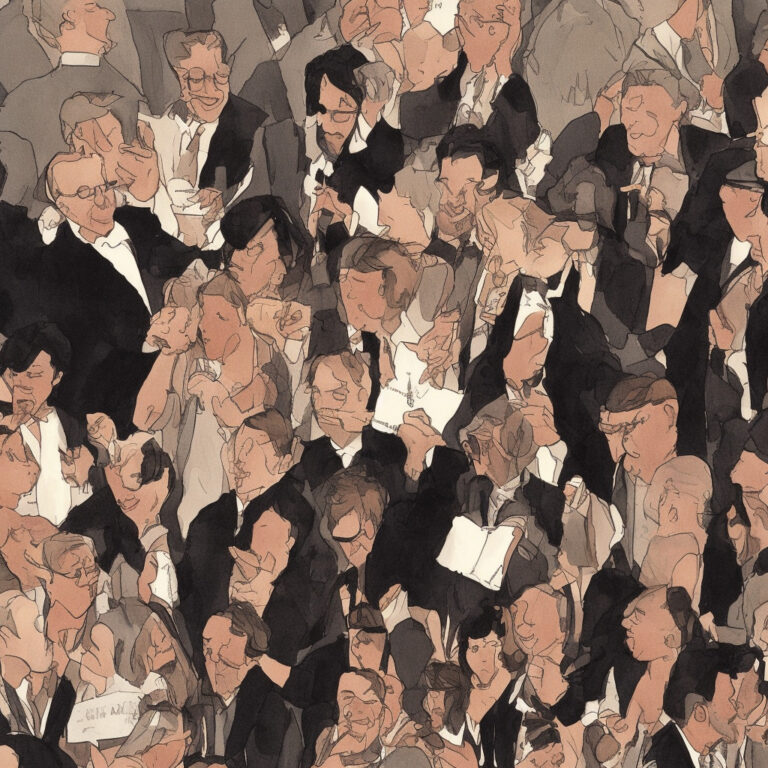
“Streets of Philadelphia” has not only captivated fans worldwide but also gained recognition and accolades in the music industry. The song was written and performed by Bruce Springsteen for the 1993 film “Philadelphia,” starring Tom Hanks and Denzel Washington, which went on to become a cinematic masterpiece addressing the sensitive subject of AIDS. The song was a perfect marriage of poignant lyrics and Springsteen’s haunting voice, seamlessly blending into the film’s narrative.
The track’s excellence did not go unnoticed, as it garnered numerous awards and nominations. Springsteen bagged an Academy Award for Best Original Song in 1994, and the song also won four Grammy Awards in 1995, including Song of the Year, Best Rock Song, Best Rock Vocal Performance, and Best Song Written Specifically for a Motion Picture or Television. Additionally, the track was nominated for a Golden Globe Award for Best Original Song. These accolades are a testament to the song’s powerful impact and enduring legacy.
Over the years, “Streets of Philadelphia” has appeared in various television shows like Cold Case and My Name is Earl, and it was also part of video games such as the 2010 installment of the popular game series, Guitar Hero. These appearances have continued to introduce the song to new generations and immortalize its legacy in popular culture.
Various artists have been drawn to cover “Streets of Philadelphia” over time, offering their unique take on the iconic track. Some notable covers include those by David Gray in 2001, Tori Amos in 2005, and Elton John during the 2005 MusiCares tribute to Bruce Springsteen. More recently, Passenger released a cover version in 2021, showcasing the song’s timeless appeal across different generations of musicians.
In summary, “Streets of Philadelphia” is not only a hauntingly beautiful song by Bruce Springsteen but has also become a significant cultural artifact, with its numerous awards and accolades, appearances in various media formats, and the many cover versions by artists who have been inspired by its powerful message.
Diving into the Musical Structure
The very essence of “Streets of Philadelphia” lies in its simplicity and raw emotion conveyed through its musical structure. Written in the key of F major, the song follows a repetitive, yet haunting chord progression that underpins the entire piece. Rooted in the diatonic scale, the chord structure revolves mainly around the I-IV-V progression, which in this case, consists of the chords F, Bb, and C. The song’s verse and chorus share the same chord progression, adding to the overall melancholic feel of the track.
Delving further into its composition, the tempo of “Streets of Philadelphia” is set at a moderate pace of around 82 beats per minute. This slower tempo allows the listener to absorb the emotional weight of the lyrics and the poignant melody. The simplicity of the rhythm, devoid of any syncopation or complex instrumentation, adds to the song’s somber atmosphere.
The instrumentation of the song is minimalist, focusing primarily on synthesizers, drum machines, and Springsteen’s distinctive vocal delivery. The synth pads create an ethereal backdrop, while the drum machine offers a steady, almost metronomic rhythm that keeps the song grounded. The use of electronic elements in the arrangement contributes to the song’s unique character, a departure from Springsteen’s signature rock sound.
One cannot discuss “Streets of Philadelphia” without mentioning its remarkable vocal melody. Springsteen’s voice carries a sense of vulnerability and sincerity that perfectly complements the song’s subject matter. The melody itself is crafted with a limited range, staying mainly within the F major pentatonic scale, which further contributes to the song’s simplicity and directness. The use of falsetto in the chorus adds a haunting quality to the melody, heightening the emotional impact of the song.
In summary, the musical structure of “Streets of Philadelphia” showcases a perfect balance of simplicity and emotional depth, with its repetitive chord progression, moderate tempo, minimalist arrangement, and poignant vocal melody. The subtle complexities of the song’s composition serve to enhance its emotional resonance and contribute to its enduring appeal.

